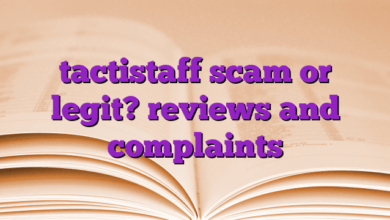is Yenpal legit or scam? reviews & complaints



KINDLY CLICK HERE TO JOIN MY WHATSAPP GROUP FOR ONLINE BUSINESS UPDATES 


Yenpal Scam Alert: Protecting Yourself from Phishing Threats
In the vast landscape of the internet, where emails flood our inboxes daily, it’s crucial to remain vigilant. The Yenpal scam is a deceptive scheme that preys on unsuspecting individuals through phishing emails. These emails claim that a package has been delivered and prompt you to click on a link, such as yenpal.com. However, these seemingly harmless links can lead to fake websites designed to steal your personal information and even infect your devices with malware. In this comprehensive blog post, we will delve into the modus operandi of the Yenpal scam, explore the warning signs, and provide you with the tools to protect yourself from phishing threats and safeguard your sensitive information.
The Yenpal Scam Unveiled
Phishing Emails: A Cloak of Deception
The Yenpal scam operates through phishing emails that cleverly mimic legitimate communications from well-known companies or services. These emails often use the logos, language, and even email addresses of reputable entities to appear genuine. Unsuspecting recipients are tricked into believing that they are receiving correspondence from a trusted source.
The Tempting Bait: Delivered Package
The bait that Yenpal scammers dangle is the notion that a package has been delivered and is waiting for you. The email typically contains a sense of urgency, with the subject line or content emphasizing the need for immediate action. The email will prompt you to click on a link, which, in this case, is often the fraudulent website yenpal.com.
The Dark Reality: Data Theft and Malware
However, behind this façade lies a dark reality. Clicking on the provided link takes you to a fake website, designed to closely resemble the legitimate website of a well-known service. If you proceed to enter personal information, such as login credentials or payment details, the scammers seize this data with malicious intent. In some instances, the fraudulent websites are also laden with malware that can infect your devices, leading to a myriad of problems.
Table 1: Common Warning Signs of the Yenpal Scam
| Warning Signs | Description |
|---|---|
| Phishing Emails with Tempting Bait | Deceptive emails claiming a delivered package and urging immediate action |
| Fake Websites and Impersonation | Fraudulent websites designed to mimic the appearance of reputable services |
| Requests for Sensitive Information | Unsolicited requests for login credentials, payment details, or personal information |
| Risks of Phishing Attacks | Potential risks include identity theft, financial fraud, and malware infections |
| Urgent Language and Poor Grammar | Scam emails often employ urgent or threatening language and may contain grammar errors |
Pro tip: Tables offer a structured view of key points.
Protecting Yourself from Phishing Threats
Vigilance Is Your Shield
In the world of online communications, vigilance is your strongest defense. To protect yourself from phishing threats like the Yenpal scam, follow these essential steps:
- Verify Senders: Always verify the sender’s email address before clicking on any links or providing sensitive information. Legitimate companies will have official email addresses.
-
Be Wary of Unsolicited Requests: If you receive an email or message that you did not expect or did not initiate, exercise caution. Unsolicited requests for personal information should be treated with skepticism.
-
Stay Alert for Warning Signs: Keep an eye out for common warning signs such as urgent or threatening language and poor grammar. Scam emails often contain these indicators.
-
Independent Verification: If you receive an email regarding a delivered package or any other important matter, independently verify its authenticity. Contact the company or service directly using official contact information.
-
Up-to-Date Security: Ensure that your devices are equipped with up-to-date security software that can detect and block phishing attempts. These security tools act as an added layer of protection.
Reporting and Prevention
If you believe you have encountered a phishing attempt like the Yenpal scam, timely reporting is crucial. Reporting the incident to your email service provider or the relevant authorities can help prevent others from falling victim to similar deceptions. It also contributes to the ongoing fight against cybercrime and fraudulent activities.
In Conclusion: Your Online Safety Matters
The Yenpal scam serves as a stark reminder of the importance of online safety and vigilance. While the internet offers boundless opportunities and conveniences, it is also home to various threats and deceptions. By recognizing the warning signs, staying informed about the tactics used by scammers, and taking proactive steps to protect your personal information, you can navigate the digital landscape safely.
Your online safety matters, and your vigilance is the key to safeguarding your identity and financial well-being. By staying alert, informed, and proactive, you can protect yourself and others from phishing threats like the Yenpal scam.
Remember, you have the power to stay safe and secure in the digital age. Stay vigilant, stay cautious, and stay protected.










